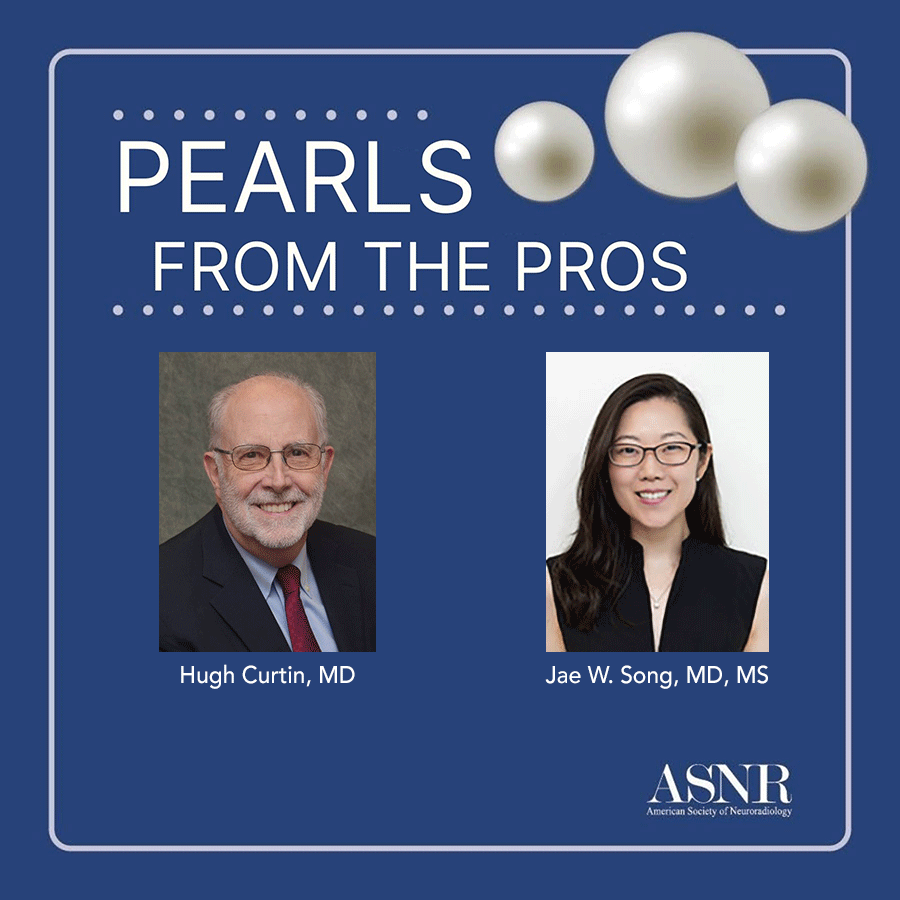Dr. Hugh Curtin Interviewed by Dr. Jae W. Song

Dr. Hugh Curtin, the Past President of ASHNR (1995) and ASHNR Gold Medalist (2009), has mentored numerous trainees and faculty over his career. He continues to share his experiences and stories and is one of the most beloved mentors in Neuroradiology. I recently interviewed Dr. Curtin for advice for junior faculty who are looking to develop their leadership skills and explore research topics. We are absolutely delighted to share this piece with the ASNR YPS Community.
What is the most important leadership lesson you’ve learned?
You serve two masters. First, the leader should understand the mission of the organization and as importantly, agree with the mission. In most cases the leader still answers to someone in administration or the Board of Directors. The leader has to pursue that mission. Second, the leader must help those under him or her to advance their careers. That does not mean that the leader must do everything that the more junior person wishes; however, the leader cares for those he or she is leading. The leader must assure that the career path of the junior people is maintained but that it benefits the mission of the organization. The leader is the link between the administration and people in the department.
The leader I most admire to this day is Dr. Eugene Myers from the University of Pittsburgh School of Medicine. When he was hired, he and the Board agreed upon and defined the mission. He then moved the entire department that he was leading in the direction of that mission. In my mind, his major attribute was that he was a very well-respected clinical surgeon with great organizational skills and had a clearly defined mission. The patient always came first and that philosophy was infused throughout the department.
Do you have recommendations to strategize long range visioning?
Pursue that which is important. A goal must be set and pursued. What are we trying to accomplish? In the field of medicine, patient care is always the primary goal. In our case, strategizing long range vision is always towards pursuing important information that will improve patient care. How can we get a better diagnostic image? Can we provide information that can help the clinician provide better medical care? With every new technology, we must ask if there is any way it can get us more or better medical information.
What are your secrets to maintaining productive multidisciplinary relationships? Do you have advice for identifying impactful research questions?
Just be present and ask questions. Get in their [clinical teams] way. Attend their grand rounds, multidisciplinary conferences, and teaching conferences. Maintain a dialogue. Know what the clinicians are thinking and the relationships will just follow. The more interaction you can have with the surgeons and oncologists, the more ideas will emerge. They need only know that you’re interested and will pursue their goals, which is to ultimately work towards improving patient care. Understand what the surgeons and oncologists need to know and provide it. Try to think one or two steps ahead of them and offer some answers before they even ask. Think like a clinician.
One of the most attractive things about our [Massachusetts Eye and Ear] department when I looked at the job is that it was on the sixth floor just above the OR and next to the surgeons’ lounge. You saw every surgeon every day. Close contact is everything.
What strategies do you use for time-management?
Just start the task and then focus, focus, focus. It is very easy to get distracted. This is particularly true when you’re working on a computer that has that little Google icon. It’s too easy to “just peak” at the news then maybe wander somewhere else. My advice is simply to focus on the task. Define your endpoint, and focus on it until you finish. If it is a large task, break it down to make it more manageable and focus on each piecemeal task. Focus and avoid distractions.
Additional Pearls:
Be nice. Encourage people. Learn from everyone you work with. Keep an open mind. Question everything. Ask, “Is this the best way?”


